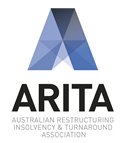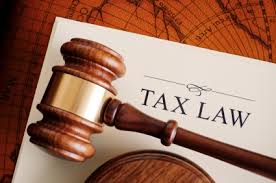The Federal Court of Appeal has dismissed an appeal by the Australian Taxation Office against a court ruling that where a tax assessment has not been issued liquidators have no obligation under s 254(1)(d) of the Income Tax Assessment Act to retain from the proceeds of sale an amount sufficient to pay an apparent Capital Gains Tax liability . (Judgment dated 8/10/2014, Commissioner of Taxation v Australian Building Systems Pty Ltd (in liq) [2014] FCAFC 133.)
The liquidators of Australian Building Systems Pty Ltd entered into a contract of sale of real property in Creastmead, Qld. The ATO argued that a tax liability for the capital gain arising from the sale arose when the sale occurred, and, accordingly, on receipt of the proceeds of sale, the liquidators were obliged under s 254(1)(d) to retain from the proceeds of sale an amount sufficient to pay that tax liability regardless of whether a tax assessment had been issued.


A couple of years ago the Australian Restructuring Insolvency & Turnaround Association (ARITA) (then the IPAA) and the ATO decided to run a test case on the obligations of liquidators upon the occurrence of a CGT event.

The decision in the first instance by Justice Logan of the Federal Court (in March 2013) has been confirmed by Justices Edmonds, Collier and Davies. Davies J summed up the decision as follows (paragraphs 34 and 35):
“Section 254(1) of the Income Tax Assessment Act 1936 (Cth) (“ITAA36”) applies to liquidators because liquidators are deemed to be “trustees” for the purposes of the taxation laws: see definition of “trustee” in s 6(1) of the ITAA36. As the consequence, a liquidator is “answerable as taxpayer” in respect of income, profits or capital gains derived by the liquidator in his or her representative capacity (s 254(1)(a)), and is required to lodge returns of such income, profits or capital gains and liable to “be assessed thereon”, but in his or her representative capacity only (s 254(1)(b)). Section 254(1)(d) then requires the liquidator to retain “out of any money” which comes to the liquidator in his or her representative capacity, sufficient money to pay tax that “is or will become due” in respect of such “income, profits or gains”, and s 254(1)(e) makes the liquidator personally liable for the tax payable to the extent of the amount retained, or which “should have been retained”. On its proper construction, it seems to me that the section contemplates that in the circumstances where the section is engaged, a post appointment tax liability, if any, will be assessed to the liquidator in his or her representative capacity, rather than to the company. That said, the analysis serves in my view to confirm that any personal liability falling upon the liquidator arises only if, and where, an assessment has issued, and there is an amount of tax that “is or will become due” in the sense of “assessed as owing”. For the reasons expressed by Edmonds J, the Commissioner’s construction of the phrase “is or will become due” as it is used in s 254(1)(d) is to be rejected. In my view the primary judge was correct to hold that the reasoning in Bluebottle UK Ltd v Deputy Commissioner of Taxation [2007] HCA 54; (2007) 232 CLR 598 in respect of the proper construction of s 255 of the ITAA36 applies equally to the proper construction of s 254, and that s 254(1)(d) is to be read as referring to an amount of tax that has been assessed. “
Interestingly, the appeal judges did not comment on Justice Logan’s cautionary advice to liquidators at the first hearing, which was:
“… Even though, for the reasons given, s 254 does not require retention upon the mere happening of a CGT event, that does not mean that a liquidator is obliged immediately to distribute the resultant gain or part thereof as a dividend to creditors in the course of the winding up. A prudent liquidator, like a prudent trustee of a trust estate or executor of a will, would be entitled to retain the gain for a time against other expenses which might arise in the course of the administration. Further, in relation to income tax, the liquidator would at the very least be entitled to retain the gain until the income tax position in respect of the tax year in which the CGT event had occurred had become certain by the issuing of an assessment or other advice from the Commissioner that, for example, no tax was payable in respect of that income year….” __________________________________________________________________________________
For my other posts on this topic see: “Post-appointment income tax debts of liquidator” 10 October 2010 “Decision only partly resolves tax puzzle for liquidators” 7 March 2014 “ATO appeals against decision in Australian Building Sysytems case” 19 March 2014



